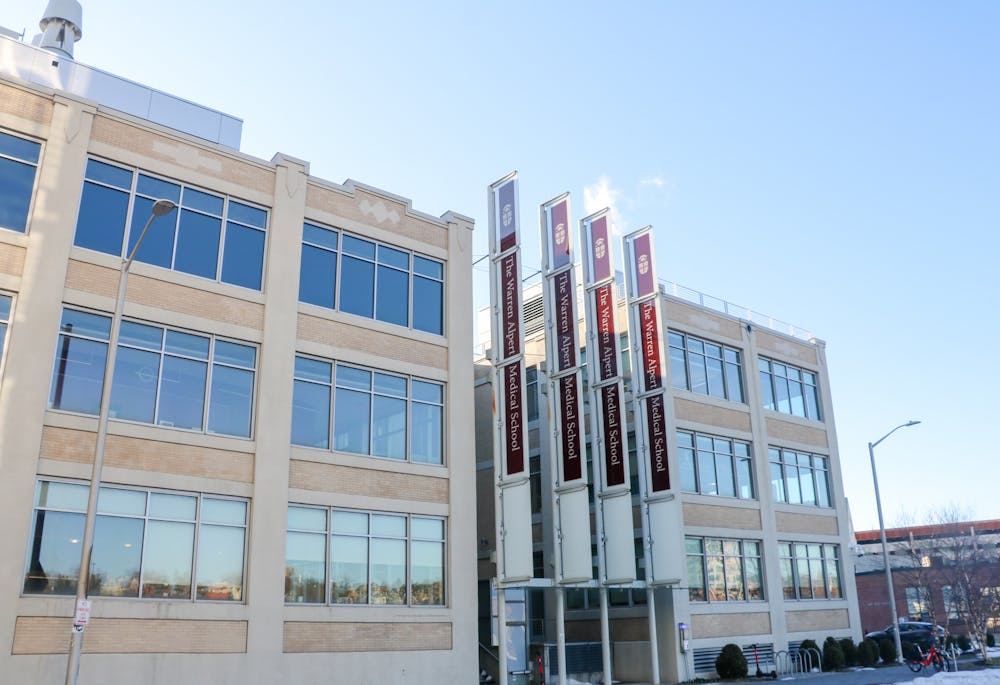The U.S. Attorney Office agreed on a settlement with Brown Dermatology Jan. 20, resolving allegations that Brown Dermatology violated the Americans with Disabilities Act of 1990 by failing to accommodate patients who are deaf or hard of hearing.
Brown Dermatology, while able to use the Brown name, is an independent physician practice foundation, wrote University Spokesperson Brian Clark in an email to the Herald. The organizations’ doctors are affiliated with the Warren Alpert Medical School, but neither the University nor the Medical School operates the practice, Clark added.
Physicians at Brown Dermatology are faculty in the Department of Dermatology at the Medical School, according to the Brown Dermatology website.
The U.S. Attorney’s Office began an investigation after a complaint was filed alleging Brown Dermatology had failed to provide sign language interpreters for a deaf patient, according to the settlement. The complaint claimed that Brown Dermatology relied on the patient’s family member to interpret, which is a violation of the ADA.
In the course of the investigation, the Attorney’s Office found that Brown Dermatology had violated Title III of the ADA by failing to provide patients with effective communication during appointments, wrote Jim Martin, a spokesperson for the United States Attorney’s Office, in an email to The Herald.
“Our investigation found that Brown Dermatology failed to provide at least eight patients who were deaf or hard of hearing with a qualified American Sign Language interpreter necessary to ensure effective communication,” Martin added.
As a result, the State Attorney set timelines for Brown Dermatology to “develop and implement policies to ensure that all patients receive effective communication during the medical appointments,” Martin wrote. Patients should also be “aware that they have the right to request and receive interpreters free of charge.”
Since the conclusion of the investigation, Brown Dermatology has begun implementing policies and services to improve accessibility, according to Daniel Labrador, clinical operations manager for Brown Dermatology.
After first learning about the complaint, Brown Dermatology engaged with an interpreter service to better serve its patients, Labrador wrote in an email to the Herald.
“To date, Brown Dermatology has been pleased with this new service, which has not missed a single requested appointment,” he added.
According to the settlement, Brown Dermatology agreed to several terms including adopting policies to improve accessibility, training staff on the ADA’s effective communication requirements and paying a civil penalty and monetary relief payment of $31,000 to “both the patient and (their) family member,” Labrador wrote.
Brown Dermatology will also implement other compliance actions “without delay,” he added.
Earnest Covington, executive director for Rhode Island Commission on the Deaf and Hard of Hearing, suggested several areas to improve equal access in healthcare.
Auxiliary aids 一 such as ASL interpreters, real-time translation services, speech to text apps, captioned telephone devices and more 一 should be accessible for deaf, deafblind and hard of hearing people, Covington wrote in an email to The Herald. Institutions can contact RICDHH to receive “training (on) how to interact with deaf, deafblind and hard of hearing patients,” he added.
Healthcare workers have an obligation to ensure that healthcare is accessible to all people, Timothy Riker, lecturer in American Sign Language, wrote in an email to The Herald. Healthcare professionals in Brown-affiliated hospitals and practices should understand legal obligations to comply with the ADA, he added.
Electives at medical schools and trainings for healthcare professionals should also teach students about topics related to patients who are deaf and hard of hearing, Riker added.

Jared is a Senior Staff Writer for Science and Research. He is a senior from Albuquerque, New Mexico studying physiology and biotechnology. Outside of The Herald he likes to fish, ride bikes and research the role of metals in human health and disease.





